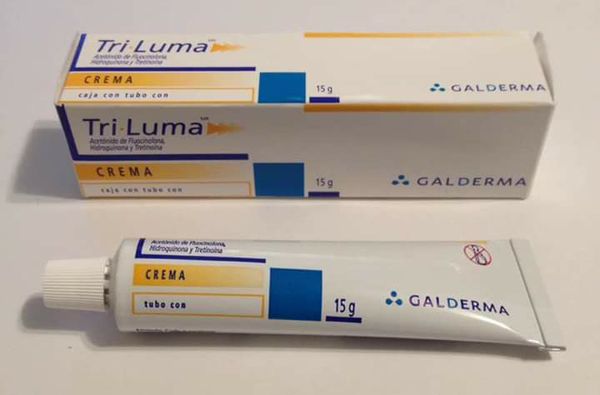AApathy is a symptom that is often seen in patients with Alzheimer’s disease (AD). It may be a sign of early dementia. Several noradrenergic drugs have been tested for their effects on apathy in AD patients. Currently, the best available evidence suggests that modafinil can reduce apathy in patients with mild cognitive impairment.
Symptoms
Apathy is a common symptom of many neurodegenerative diseases, including Alzheimer’s disease. It’s core clinical features include a lack of drive and intention for goal-directed behavior, indifference, and diminished emotional responsiveness.
| Hair colouring London Bridge |
| Hair salon Bermondsey Street |
| Hair stylists London Bridge |
| Hair Treatment London Bridge |
| Haircut London Bridge |
| Hairdresser Bermondsey |
In AD patients, apathy has been associate with dysfunction of regions of the prefrontal cortex (PFC), anterior cingulate cortex (ACC), inferior frontal cortex, caudate nucleus, and putamen nucleus. 22–24 These areas are link to dopaminergic and cholinergic neurotransmission. Apathy symptoms may also be influenced by decreased serotonin 5HT1a receptors, which are up-regulated in mild cognitive impairment but a decrease in AD.
Several pharmacological agents have been report to reduce apathy, but the evidence is limit. Studies involving more participants, longer treatment durations, or distinct neural pathways are need to further understand the potential role of these drugs in apathy.
Diagnosis
Apathy is a common symptom of Alzheimer’s disease (AD). It is often persistent and associated with a lower quality of life, a faster decline, and more burden on caregivers.
Several studies have assessed the pharmacological effect of Modafinil in reducing apathy in AD patients. The results of these trials suggest that MPH does not improve apathy.
In clinical trials, apathy should be define using widely accepted diagnostic criteria that can be apply to diverse populations. In the clinical setting, this is facilitate by using rating scales that obtain information directly from the patient or from their carer (professional or informal) or study partner, clinician evaluation, or a combination of these.
Apathy is present in all stages of Alzheimer’s disease, vascular dementia (VaD), frontotemporal lobar degeneration (FTD), dementia with Lewy bodies (DLB), and Parkinson’s disease (PD). It may be a major or minor symptom. However, it is important to determine if apathy is present in order to identify the best treatment option.
Alzheimer’s medications with FDA approval
The FDA has approved treatments that alter disease progression in people with early Alzheimer’s disease, as well as drugs that may temporarily alleviate the symptoms of Alzheimer’s dementia.
It is crucial to consult a healthcare practitioner before deciding on any course of treatment to ascertain whether it is necessary. People who are taking these medications should be closely monitore by a clinician with experience using them, who will also make sure that the suggested guidelines are rigorously follow.
Treatment
Apathy is one of the most common symptomatic signs of neurodegenerative disorders, such as Alzheimer’s disease (AD), as well as a variety of other brain disorders, including mood disorders and traumatic brain injuries. Apathy is typically characterize by a lack of drive or intention for goal-directed behavior, indifference, and diminished emotional responsiveness.
It is generally thought that apathy is associate with network dysfunction in the PFC-basal ganglia circuitry, which is likely due to neurotransmitter deficiencies. These may include dopamine, serotonin, and cholinergic or glutamatergic deficits. Buy Modalert 200 can improve cognitive performance in areas including attention, memory, and executive functions. Waklert Australia boosts alertness and reaction accuracy, according to recent behavioral research
Several pharmacological options for treating apathy have been develope. These include dopaminergic agents (e.g., pramipexole, rivastigmine), serotonin reuptake inhibitors (SSRIs), and cholinergic and glutamatergic agents.
Modafinil is a vigilance-promoting agent that increases dopaminergic transmission and may alleviate apathy. It has been show to improve cognition and attention in AD patients with apathy. In one study, a 78-year-old man with dementia and apathy who had not responded to antidepressants, including escitalopram, was successfully treate with modafinil.
Side Effects
Apathy is a common symptom of Alzheimer’s disease (AD). Dysfunction of key neuronal circuitry in the PFC-basal ganglia network may account for the development of apathy symptoms. These include the dorsal anterior cingulate cortex (dACC), the nucleus accumbens and olfactory tubercle, the orbitofrontal cortex, and the inferior frontal cortex.
Several studies have show that apathy is associated with hypometabolism in these areas. nd a reduction in dopamine levels in the basal forebrain. The dopaminergic agonist pramipexole, which is also use in Parkinson’s disease (PD), may be useful in the treatment of apathy symptoms.
The most important drug in the treatment of apathy in patients with AD is methylphenidate, which has been show to improve NPI-assessed apathy in several randomize, double-blind trials. Moreover, it has been show to reduce agitation and general measures of neuropsychiatric symptoms in a meta-analysis of 12 open-label clinical studies.
Medicines that alter the course of the disease
By attacking the underlying biology of the illness process, medications in this category decrease the course of the disease. They are designe to slow the functional and cognitive decline of people with Alzheimer’s disease.
Anti-amyloid medications function by binding to and expelling beta-amyloid, a protein that builds up in plaques in the brain. Each has a unique mechanism of action and targets beta-amyloid at a distinct stage of plaque development.



